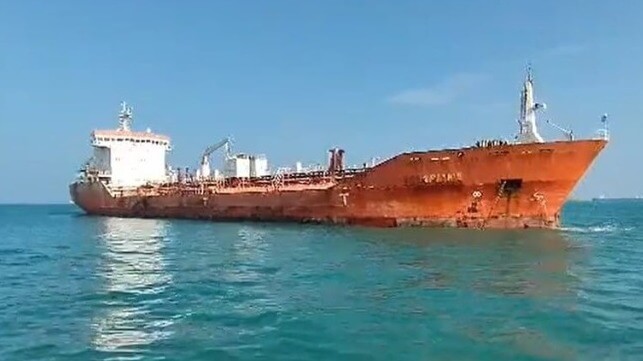Iran's IRGC Seizes a Fuel-Smuggling Tanker Near Strait of Hormuz

Over the weekend, Iran's Islamic Revolutionary Guard Corps (IRGC) seized a tanker carrying smuggled fuel, the latest in a long series of busts - but this time with a larger than usual volume. The vessel was carrying nearly three million gallons of diesel, a near-record amount, according to Mojtaba Qahremani, the judiciary chief for the province of Hormozgan.
The foreign-flagged tanker's captain and crew are being held pending prosecution, Qahremani told the IRGC-affiliated outlet Tasnim News.
Iran heavily subsidizes gasoline and diesel supplies for its domestic market, leading to rampant smuggling as illicit actors take advantage of the price differential to sell discount fuel in neighboring states. The collapse of the value of the Iranian rial over the past four years has widened the opportunity for profit. Most fuel smuggling occurs via tanker trucks and small vehicles crossing Iran's land borders, and the destination markets are primarily neighboring countries in Central Asia.
A portion travels by maritime routes aboard small coastal product tankers, and the IRGC periodically announces an interdiction. The latest record was set in 2019, when it carried out the seizure of three million gallons aboard a tanker and detained 21 people involved in a smuggling ring. According to Radio Farda, the Persian-market edition of the U.S.-funded Radio Free Europe, the bust was equal to the amount of gasoline typically smuggled out of Iran on a daily basis.
The IRGC is itself an active participant in energy smuggling, though with state approval and at far larger scale. According to the U.S. Treasury, it uses a sophisticated network of shell companies and a system of ship-to-ship transfers in order to evade U.S. sanctions on Iranian energy exports. The U.S. believes that the profits go to support the IRGC's paramilitary activities in the Middle East, including funding for militant groups like Lebanon's Hezbollah and Yemen's Houthi rebel movement.
